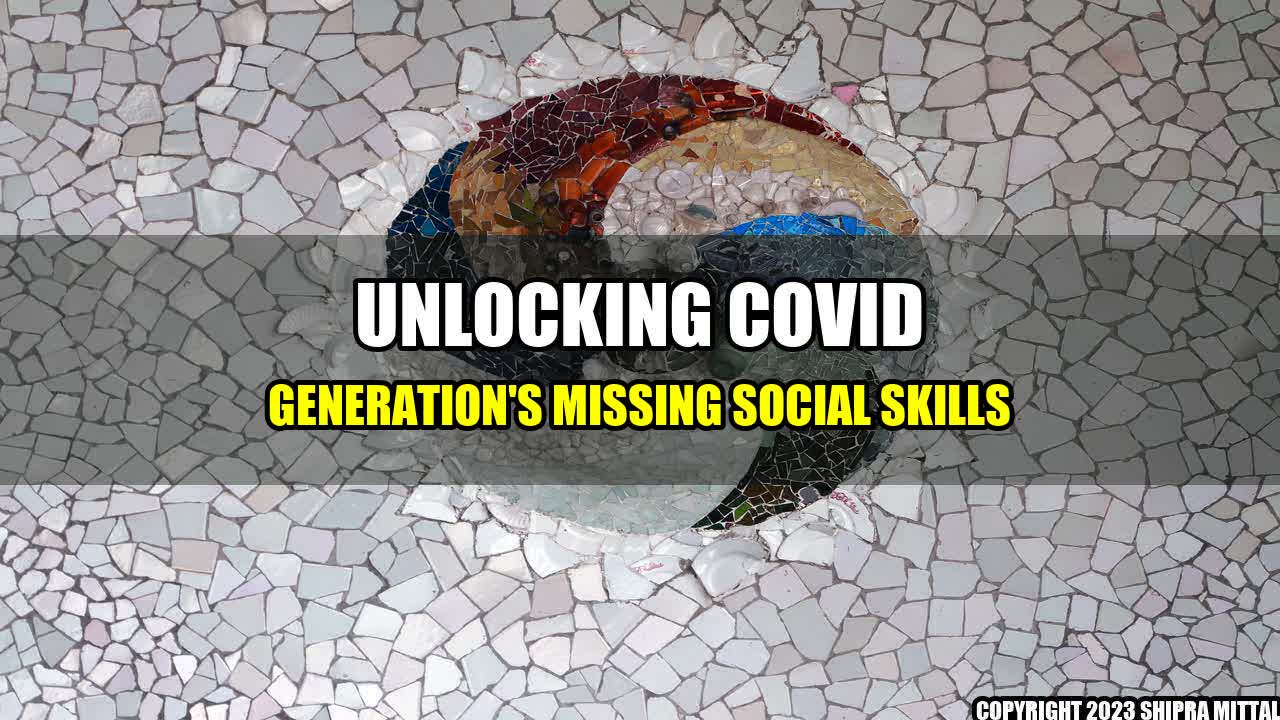The Struggle of Covid Generation
As a mother to two elementary school children, I have come to realize the impact of Covid-19 on my children's social skills. After months of remote learning and social distancing, both of my kids were struggling to communicate with their peers and engage in social activities. Seeing them struggle with the simplest social interactions made me realize that I needed to help them develop their social skills.
The Impact of Covid-19 on Social Skills
Covid-19 pandemic has brought drastic changes in our daily lives, including an increasing reliance on technology and social isolation. For many children, the impact can be seen in different ways, such as difficulty in communication, emotional regulation, and physical activity.
A study conducted by the American Psychological Association (APA) found that the pandemic has affected the cognitive and emotional development of children. The study also found that children who had access to reliable and supportive parents performed better in terms of social and emotional development.
The Importance of Social Skills
Social skills refer to the ability to communicate and interact effectively with others. These skills are essential for building healthy relationships, managing emotions, and succeeding in all areas of life. For children, social skills are especially crucial for academic success and mental health
Children with strong social skills are more likely to perform better academically, have a positive attitude, and establish meaningful relationships. They are also more resilient, better able to manage stress, and have a lower risk of developing mental health issues.
Parenting Strategies to Encourage Social Skills
As parents, we play a crucial role in our children's social and emotional development. Here are some strategies that can help encourage social skills in our children:
- Model Social Skills: As parents, we need to be positive role models and exhibit strong social skills such as active listening, empathy, and communication.
- Encourage Playtime: Playtime with peers can help children develop social skills such as sharing, cooperation, and negotiation. Parents can encourage playdates, outdoor activities, and participation in group activities.
- Teach Emotional Regulation: Emotional regulation is the ability to manage and express emotions in a healthy way. Parents can teach children how to identify and express their emotions effectively, provide them with healthy coping mechanisms, and model good emotional regulation.
- Provide Opportunities for Socialization: Providing children with opportunities for socialization can help them practice their social skills and build confidence. Parents can encourage participation in after-school activities, clubs, or sports, and help children develop new hobbies or interests.
- Limit Screen Time: Excessive screen time can have negative effects on children's social skills, mental health, and physical health. Parents can set limits on screen time, monitor their children's online activities, and encourage outdoor play and physical activity.
- Provide Support and Comfort: Parental support and comfort can help children feel secure and confident, which is essential for their social and emotional development. Parents can provide a safe and supportive environment for their children to express themselves and seek help when needed.

Akash Mittal Tech Article
Share on Twitter Share on LinkedIn